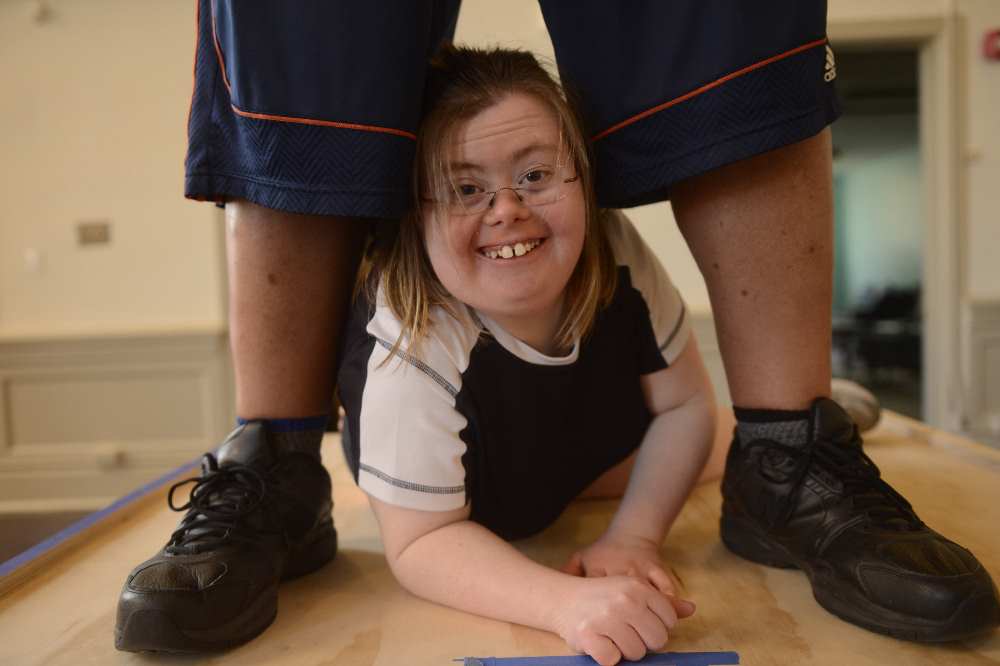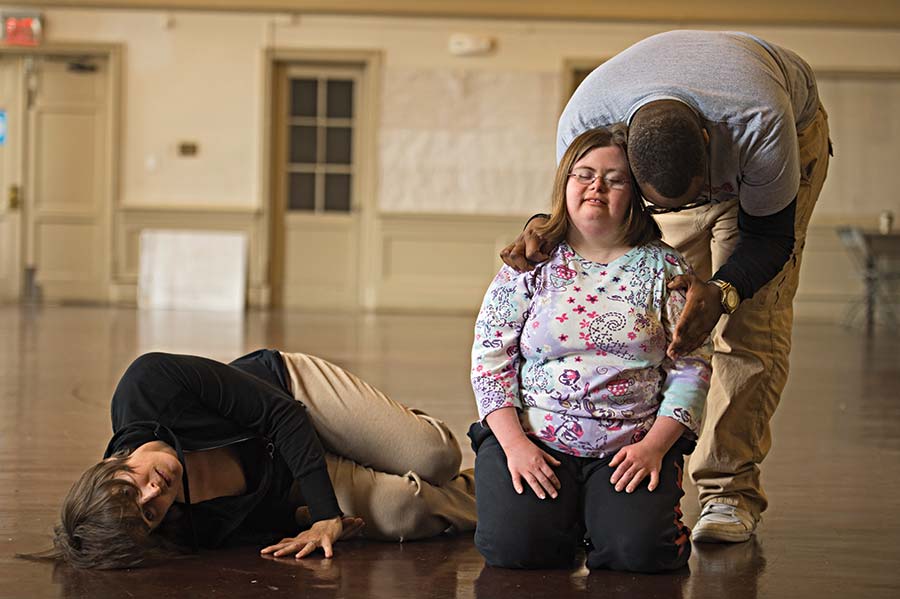PHILADELPHIA: “It’s one of my first lines in the script. My character uses the word ‘retarded.’ And my castmates, they look at me like, ‘How could you hurt me like that? Don’t you understand what you’ve said?’” recounts Charlie DelMarcelle after a workshop for the world premiere of Suli Holum’s A Fierce Kind of Love, running at Philadelphia’s Christ Church Neighborhood House April 7–17. DelMarcelle is one of the nondisabled members of the diverse cast, and though that line was scripted, the tension it evoked in rehearsal led to a real-life teachable moment. “I’m ashamed to say that I’ve used that word in a cavalier manner before. Never again. And if that’s something we could share with an audience…” He trails off as he searches for the right words: “Then this piece is already some of the most important work I’ve ever done.”
The show, presented by the Institute on Disabilities at Temple University, tells the story of grassroots activist mothers in the 1960s who fought for their children to live outside institutions. Producer Lisa Sonneborn, a documentary filmmaker by trade, began conducting interviews several years ago to assemble a comprehensive history of these mothers and their children. But it wasn’t until she met director David Bradley that the idea of creating a play began to take shape.
“I love stories that haven’t yet been told,” says Bradley. “This is a civil rights story. It’s a story about what it really, truly means to live in an inclusive society.”
It’s also a story with strong Philadelphia roots. Sonneborn, Holum, and Bradley collected dozens of interviews from which emerged a combination of scripted text, movement, and song. This approach, they felt, would help the piece resonate with audiences regardless of their prior knowledge of the history.
“There’s such a diversity of perspective in the rehearsal room,” says choreographer Nichole Canuso. “And it’s so vital that the people who have lived out this story firsthand are contributing to the writing of their own story now. It leads to an incredible amount of empathy.”

“I don’t like being treated like a stereotype. It’s hurtful. It’s mean,” says Erin McNulty, who has Down syndrome and cites actor Chris Burke of “Life Goes On” fame as her inspiration. She’s vocal about the ways this project empowers her. “Acting makes me feel like my voice is being heard. It makes me feel not afraid.”
Sonneborn expects the piece to push people beyond their comfort zones, and she’s more than okay with that.
“When we talk about diversity within the theatre, this isn’t an audience that is frequently thought of. I’m hoping this changes that mindset. If it shifts people’s perspective about living with a disability, or helps them see that our disability history is a part of all of our collective history, it’s important and worthwhile.”





